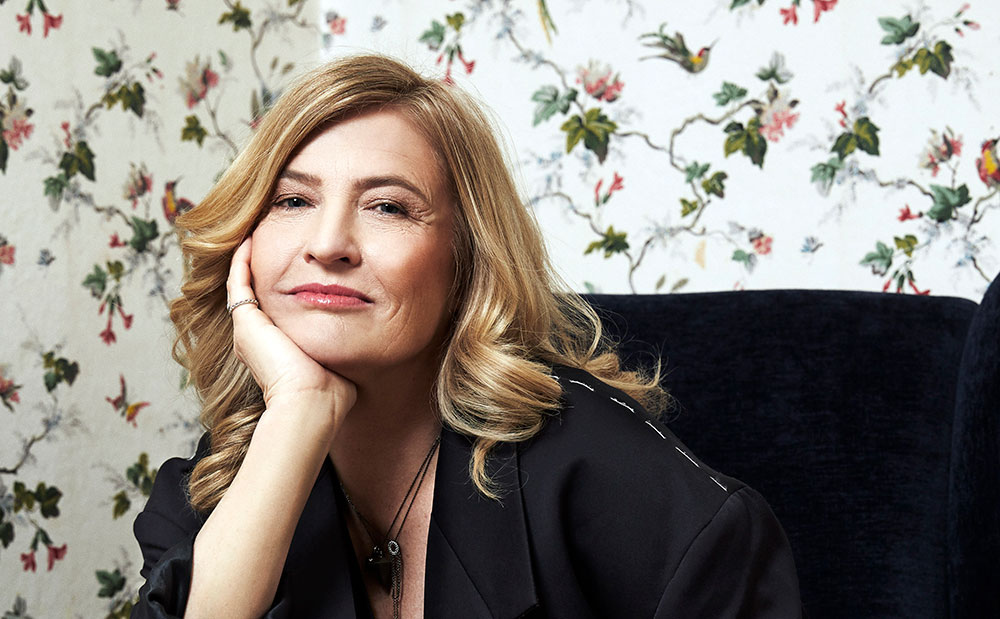BSA Distinguished Lecture on 11/20: Mystery of Dark Matter
November 6, 2024
Physicist Katherine Freese will give a talk, titled "The Mystery of Dark Matter in the Universe," at the U.S. Department of Energy's Brookhaven National Laboratory on Wednesday, Nov. 20. Her talk, a BSA Distinguished Lecture, will be held at 4 p.m. EST.
These lectures are free and open to the public.
Attendees can attend Freese’s BSA Distinguished Lecture in two ways:
- In person in Berkner Hall.
- Virtually on Zoom.
Visitors to the Laboratory ages 16 and older must bring valid, government-issued photo ID. Digital IDs and copies cannot be accepted. Maps and directions to Brookhaven Lab are available on this webpage.
Lecture description: A cosmic cocktail of mysterious matter
The atoms that make up everything from people and plants to planets and stars constitute only 5% of all known matter and energy in the universe. The remaining 95% comprises 25% “dark” matter and 70% “dark” energy. The nature of both remains a mystery.
During this BSA Distinguished Lecture, Freese will begin with discoveries made by visionary scientists in the 1930s who first proposed the existence of dark matter. She will continue with Vera Rubin, whose observations in the 1970s conclusively showed dark matter’s dominance in galaxies. She will also discuss the deluge of data today from underground laboratories, satellites in space, and the Large Hadron Collider, which is located at CERN, the European Organization for Nuclear Research.
Theorists contend that dark matter most likely consists of new fundamental particles. The best candidates include weakly interacting massive particles — referred to as “WIMPs” — axions, light or fuzzy dark matter, and primordial black holes.
Freese will also provide an overview of this cosmic cocktail, including evidence for the existence of dark matter in galaxies. She will then talk about “dark stars” — early stars, powered by dark matter, that may already have been discovered by the James Webb Space Telescope.
About the speaker
Katherine Freese is director of the Weinberg Institute for Theoretical Physics and the Jeff and Gail Kodosky Endowed Chair of Physics at the University of Texas at Austin. There, she is also director of the Texas Center for Cosmology and Astroparticle Physics. Freese is working to identify the dark matter and dark energy that permeate the universe and build a successful model of the early universe immediately after the Big Bang. She was elected to the National Academy of Sciences in 2020.
Freese authored the book “The Cosmic Cocktail: Three Parts Dark Matter,” which was published in June 2014. She was awarded the 2019 Lilienfeld Prize from the American Physical Society “for groundbreaking research at the interface of cosmology and particle physics, and her tireless efforts to communicate the excitement of physics to the general public.”
Freese earned her Ph.D. in physics from the University of Chicago.
About the BSA Distinguished Lectures Series
BSA Distinguished Lectures are sponsored by Brookhaven Science Associates (BSA), the company that manages Brookhaven Lab, to present topics of general interest to the Laboratory community and the public.
Freese’s talk is being presented as part of the workshop “Uncovering New Laws of Nature at the EIC.” This event will provide physicists opportunities to bridge high energy and nuclear physics research at the future Electron-Ion Collider (EIC), a state-of-the-art nuclear physics facility for studying the building blocks of matter being built at Brookhaven in partnership with DOE’s Thomas Jefferson National Accelerator Facility.
Brookhaven National Laboratory is supported by the Office of Science of the U.S. Department of Energy. The Office of Science is the single largest supporter of basic research in the physical sciences in the United States and is working to address some of the most pressing challenges of our time. For more information, visit science.energy.gov.
Follow @BrookhavenLab on social media. Find us on Instagram, LinkedIn, X, and Facebook.
Related link
- Video replay: The Mystery of Dark Matter in the Universe
2024-22158 | INT/EXT | Newsroom










